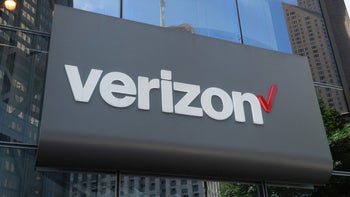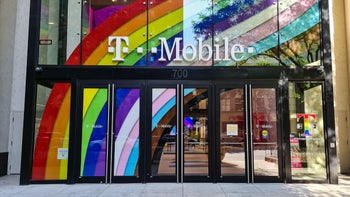Apple is not a monopoly claims CEO Tim Cook as two developers sue

Yesterday, we told you that four U.S. tech firms could be investigated for possible antitrust violations by the Federal Trade Commission (FTC) and the Justice Department (DOJ). Monday's report says that the former will probe Amazon and Facebook while the latter will look at Apple and Google. According to Reuters, Apple CEO Tim Cook thinks that it is fair for Apple to be under scrutiny by the U.S. government, but he says that the company is not a monopoly. During a televised interview on CBS, Cook said that while Apple does control 30-35% of the U.S. smartphone market, Apple is not too big and does not need to be broken up by the government.
The company is being investigated in the EU after Spotify complained that by taking a 30% cut of App Store revenue, Apple is forcing its subscribers to sign up with its own Apple Music streaming service. Spotify has raised its prices in the App Store to protect its profit margins, and that means that it is priced higher than Apple Music in Apple's iOS app storefront. Normally, Spotify charges the same exact prices as Apple Music does. And the U.S. Supreme Court ruled last month that iOS users can sue Apple for acting like a monopoly by taking a 30% cut of the revenue generated by apps in the App Store. The plaintiffs in a huge class action suit allege that since Apple doesn't allow users to sideload apps, they are forced to pay higher prices for apps because of the so-called 30% Apple tax.
Netflix and Spotify both rail against the Apple tax
In a related development, Reuters reports that two app developers are suing Apple for various reasons, including the fact that it allows iOS apps to be installed only through the App Store. The suit claims that by doing this, the company is engaging in anticompetitive conduct. The developers, Donald R. Cameron, and Illinois Pure Sweat Basketball, both complain about Apple's 30% revenue cut and the policy that forces them to price their apps in tiers ending in 99 cents. Google's Android-based app storefront, the Google Play Store, has similar rules. Google charges a distribution fee of 30% on revenue collected for app purchases and in-app purchases. However, Android allows users to sideload apps and avoid the Play Store.
"This practice is analogous to a monopsonist retailer paying artificially low wholesale prices to its suppliers. In both paradigms, a competitive market would yield better post-commission or wholesale prices, and fairer profit, for developers’ digital products."-Developers suit against Apple
Apple has responded by saying that it applies its App Store policies to everyone "evenhandedly," whether or not Apple competes with a certain developer. The company notes that some of its rivals, like Microsoft, do very well by offering its apps in the App Store. Apple claims that 84% of the apps in its store are free, and says that it has paid developers a total of $120 billion since the App Store opened on July 10th, 2008.
Besides Spotify, Netflix also has been fighting back against the Apple tax. The video streamer no longer allows new subscribers to sign up for service via the iOS app. Last year, the company took in $853 million from the App Store. Since the store opened, Netflix has generated $1.5 billion from its listing, which means that Apple's cut has amounted to more than $450 million.
Follow us on Google News













Things that are NOT allowed:
To help keep our community safe and free from spam, we apply temporary limits to newly created accounts: